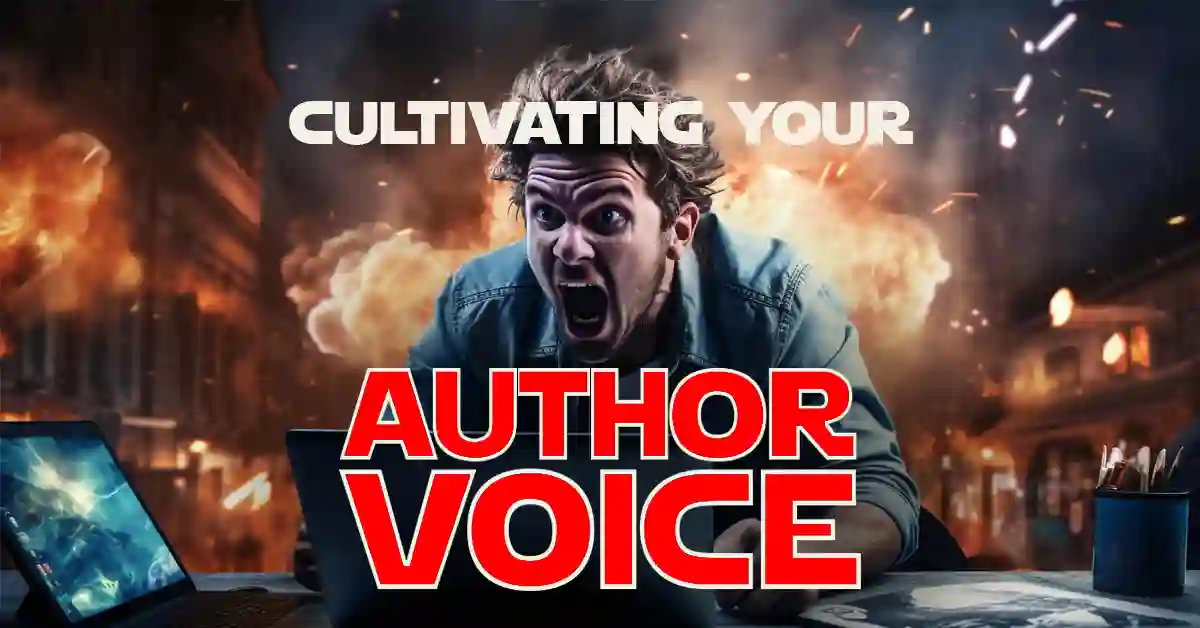What is an author’s voice, and how can we cultivate it? An author’s voice is the unique way we share and express our story, using an imaginative framework of words to develop characters, settings, ideas, and emotions. A cultivated writer’s voice immerses readers in the story, making them feel like they are experiencing it firsthand.
Refining our voice is not a one-time task. It’s a continuous process that involves employing creative syntax and carefully choosing our words. To express imagination effectively, writers must dedicate themselves to learning and practicing their craft.
Let’s delve deeper into the process of cultivating a captivating narrative voice. What elements contribute to it, and how can we become better artists? How can we infuse our writing with a distinct personality that evokes emotion and thought? These are the questions we will explore here.
Technical Skills
Appealing writing is crafted through our word choices and paragraph structure, resonating with readers in every scene. We should explore the infinite possibilities of words, meaning, grammar, and composition until we achieve the desired aesthetic appeal. A captivating voice conveys vivid imagery to elicit images and meaning through carefully chosen words and phrases. The paradox is that the words should seem to have flowed naturally onto the page. How is it possible to resolve this paradox?
Josip Novakovich advises us to write as we speak (Novakovich, 1995). Some writers have a concise spoken style with short, sharp sentences, while others lean towards sweeping poetic narratives. This should be reflected in their writing. Writers may prefer richly descriptive sentences or to speak with a minimum of words. They may enjoy employing figurative language or a literal style accompanying the story. The preferred styles should be nurtured to shape audience expectations and trust.
Valarie Valdes, (2024, May) suggests we ask “What does the specific syntax say about the speaker? How does it affect Pacing? Creative tension? Evoke humor or horror?” These questions should be answered in relation to the effect our writing wants to achieve.
Self-Awareness
As Bhide (2008) highlights, cultivating self-awareness refines our writing voice. Self-awareness involves recognizing and understanding our unique writing style, values, and beliefs. To deepen this awareness, ask yourself: What themes do you explore in your writing, and how do they connect with heartfelt concerns like justice, family values, love, and inclusivity? How do you personally resonate with these themes? Where do you find beauty within your story, and why is it meaningful to you and others?
While self-awareness varies from person to person, we can all enhance it by practicing clarity and empathy. This involves observing and comprehending others’ attitudes through verbal and nonverbal cues, analyzing their writing, and critiquing. This increased awareness can empower us to be more expressive, open, and relatable, allowing readers to engage with our plot and characters deeply.

Aligning our themes and ideas with the prevailing mood, cultural context, and scientific advancements fosters trust in our voice and keeps readers engaged in our narrative. For example, as scientific knowledge evolves, fictional depictions of space travel must adapt to include considerations like weightlessness and air quality.
To remain original, a story must explore shifts in taste. An appealing voice needs to stay rooted in cultural beliefs and accepted wisdom. Merely mastering our craft and self-awareness is insufficient to follow existing trends while introducing innovative ideas.
Understanding the concept of a shared imagination involves recognizing the profound power of empathy. Our bodies respond similarly when reading about an action as when we physically perform it, a phenomenon driven by ‘mirror neurons’ (Pearce, 2019). This underscores the importance of sharing visceral responses with our readers to create a truly immersive reading experience.
Imagination
Creativity is inherent in our imaginative process. A creative voice conjures entire worlds from thin air or captures the essence of a lifetime in a fleeting glance. When our imagination is healthy, this creativity flows naturally, with humility, aesthetics, empathy, insight, charm and transcendence.
Our collective imagination offers profound insights into our humanity. While each individual possesses imaginative faculties, the shared imagination truly captivates. It delicately shapes our emotions and weaves tales from our personal encounters. It is akin to an artist’s canvas, where our creative instincts paint intricate scenes, drawing from the depths of our emotions, such as the wonder we share when gazing at the stars.
A shared imagination is essential for comprehending abstract concepts, enriching character descriptions, and deepening plotlines. Themes like justice, redemption, or compassion resonate deeply with readers, infusing characters with depth and complexity.
Imagination guards our voice, preserving its authenticity, ingenuity, and ethical integrity. It evokes instinctive reactions that align with our collective sensibilities, whether a sense of awe, beauty, or whimsy.
Many writers speak of entering a flow state, channeling their muse, or tapping into their authentic selves as they create from their imagination. In any case, when engaging in creative endeavors, nurturing our imaginative spirit with sincerity and openness is recommended over trying to force inspiration.
Narrative Voice
An appealing narrative voice engages readers by showing rather than telling. It draws them into the story, encouraging them to explore new perspectives through shared imagination rather than direct instruction. This voice should stir emotions like fear, wonder, and anger, weaving beauty and vivid imagery into the narrative to immerse readers in the created world.
The narrative voice is a reader’s gateway to an imaginative realm, inviting readers to join the characters on the story’s journey.
Our ability to blend technical skill, self-awareness, and imagination forms the foundation of this captivating narrative voice. Each of us possesses a unique voice. Sharing and refining our narrative voice within critique groups provides valuable insights and opportunities for growth as a writer.
Citations
- Novakovich, J. (1995). Fiction Writer’s Workshop. https://openlibrary.org/books/OL1121346M/Fiction_writer’s_workshop
- Pearce, K. (2024, February 5). Mirror Neurons: Why Good stories provoke empathy and connection. DIY Genius. https://www.diygenius.com/mirror-neurons/#:~:text=The%20proponents%20of%20the%20mirror,are%20happy%2C%20we%20feel%20happy.
- Bhide, A. V. (n.d.). Charisma: The phenomenon and its psychology: A mental health perspective. Indian Journal of Psychiatry. https://journals.lww.com/indianjpsychiatry/fulltext/2008/50040/charisma__the_phenomenon_and_its_psychology__a.11.aspx
- Valdes, V. (2024, May, Speculative Fiction Writers Assoc. Workshop), Discovering, Defining and Developing Voice

Kenneth Vickery (primary author)
As a passionate author hailing from Western Australia, I am on a mission to shatter stereotypes and illuminate the profound diversity of humanity. My writing is a dynamic exploration of outlandish characters thrust into extraordinary circumstances, serving as a lens through which to examine complex social issues. My current project is a futuristic spy thriller that explores the value of humanity when AI becomes better at intellectual tasks.
For over two decades, I have honed my craft, immersing myself in the rich tapestry of storytelling. Along the way, I have cultivated a vibrant community of fellow writers and avid readers eager to share in the boundless possibilities of narrative expression. Through writing groups and book clubs, I have found both guidance and inspiration, propelling me ever forward on my creative journey.
Following my retirement from the mental health field in 2017, I dedicated myself wholeheartedly to the pursuit of writing. With each story I pen, I strive to push the boundaries of imagination, challenging perceptions and inviting readers to embrace the limitless potential of the human spirit.
While my eyesight may falter, my passion for storytelling burns brighter than ever. Though I may now rely on audiobooks to feed my appetite for literature, my commitment to crafting compelling narratives remains unwavering. With each word I write and each story I share, I aim to ignite a spark of curiosity, empathy, and wonder in the hearts of readers around the world.

Elaine Clark (secondary author)
I am a retired community college mathematics professor with an interest in quantum physics, unified field theories, aliens, and great stories. I’ve been an avid reader of speculative fiction ever since I read A Wrinkle in Time when I was a kid. For the past many years (uh hm, we won’t put a number), I’ve made attempts at writing my own great stories, with mixed results.
In his book Writing Fantasy & Science Fiction, Orson Scott Card describes four types of stories: the Milieu Story, the Idea Story, the Character Story, and the Event Story. Though all four of these concepts are important to a well-crafted tale, I find myself writing primarily Character stories. I enjoy exploring how characters develop with changing circumstances and how we can view social paradigms through a different lens. I also like to challenge myself to select a well-worn trope – young person going to magic school, first encounter of aliens and humans, etc. – and see if I can come up with a fresh take.

Speculative Fiction Writers is an online critique group. The members support and encourage each other toward the goal of publishing what they write.

